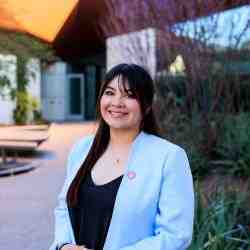Introduction
Federico is reshaping the narrative for "Care Leavers" in Italy, turning their experiences into a powerful advocacy movement through the Care Leavers Network (CLN) Italy. He champions these young adults as "experts by experience," empowering them to shape policies and societal attitudes as they transition from the welfare system into independence. His proactive approach not only supports current care leavers but also sets a foundation for future generations to navigate their paths with greater support and visibility.
The New Idea
The term 'Care Leavers' specifically refers to young adults who are moving from structured care environments as part of the child welfare system to independent living, navigating this crucial phase without the traditional family support systems that many of their peers rely on. In Italy, this transition applies to minors under the age of 18, including those in group homes, family foster care, adoptions, and foster communities. The phenomenon is complex to frame, and the leavers' background stories are very different, but both welfare and legal systems identify them into fixed paths that often fail to grasp their diverse needs, aspirations, and individualities. Federico is creating a new collective narrative that changes the risk that care leavers experience themselves as institutionally dependent, marginalized, and suffering social stigma. He calls them "experts by experience" (esperti per esperienza). Their individual stories have galvanized into a collective changemaking process, in which they give back in the form of advocacy actions to overcome existing prejudices and social inequalities, within the transitory period from the public welfare system.
The Care Leavers Network (CLN) Italy is a network of young people aged between 16 and 26, involved in an active participation and citizenship program. It was initiated in 2014 as an informal network of young people coming from, or still in, residential and foster care. Since 2017 the project has evolved at the national level and is now active in 12 Italian Regions with the participation of over 1200 young people and professionals. Although informal groups of care leavers have emerged elsewhere in Europe, the uniqueness of Federico’s approach consists in formalizing and harnessing the collective of care leavers as an advocacy network while anchoring the effort on key definition and impact indicators to measure care leavers’ holistic wellbeing over time. The network is a platform where care leavers can freely reflect on their experience in foster care and a safe place for peer-to-peer discussion. By sharing their personal stories without judgement, each one could embrace a new perspective and understand their story from a personal, group, and social point of view.
Bringing care leavers together is central to policy proposals. To date, the network has achieved remarkable results: first, CLN Italy held its first national conference in 2017 – an innovative and successful event that allowed care leavers to draw significant political attention. In alliance with the National Ombudsman for Children, Federico advocated for the Italian government and the Ministry of Labour and Social Policies to approve concrete support measures for Italian care leavers, resulting in the Italian National Law on leaving care in 2017, which brought proper legislative attention to the current gap in the transition from the welfare system to adulthood and established a new National Experimental New Adult Fund. CLN also signed an agreement with the National Council of Social Workers to implement training courses hosted by care leavers as co-teachers. Since 2019, Federico has also been leading the European CLN, which is formed by groups and associations in England, Croatia, Ireland, and Romania. The alliance worked on the definition of European leaving care recommendations for policymakers based on the Italian model recognized as the most effective to date. Federico’s approach is grounded in cross-system collaboration while promoting a shift that recognizes care leavers as makers of their own paths.
The Problem
According to the 13th Monitoring Report on Child and Adolescent Rights in Italy published in 2023 by the Working Group on the Convention on the Rights of the Child and Youth, about 7000 young people in Italy left the child protection system in 2020 alone, officially becoming care leavers. Due to the lack of a standardized national monitoring system, determining the real and effective number of care leavers in Italy is complex. For example, the Italian system distinguishes between 1) those who have grown up within the child protection system because of a separation from their family of origin ordered by the Judicial Authority, 2) unaccompanied foreign minors, and 3) children who are serving a sentence within a juvenile correctional institution. Moreover, the presence of Unaccompanied Foreign Minors is particularly significant in Italy, as it is a so-called first-entry country, where it is common for young migrants to spend the initial stages of their lives, often in residential communities.
The study led by Federico, “Care Leavers: youth, participation and autonomy in Italian leaving care” in 2021 is the first in Italy and provides a snapshot of the Italian phenomenon of care leavers: 59% with Italian citizenship, 20% with foreign citizenship, and 21% who are unaccompanied foreign minors. Regarding the welfare system, 28% live exclusively in family group homes, 5% live in foster care, and 67% have mixed experiences. The study found that the paths are far from linear, as 62% of youth in the welfare system experience more than one foster care experience, and a third of all youth in the system have unstable pathways to adulthood. In addition, the study noted that a young person's experience in a residential facility often has psychological implications, such as the concrete fear of not being able to find a job or a home when they reach the age of majority, and also relational impoverishment, such as loosening family relationships, lack of trust in adults and institutions, and for girls, the risk of becoming underage mothers.
In Italy, residential care is guaranteed to minors but when they reach the majority age (18 in Italy), they must leave the care system, and the welfare system is not designed to enable an appropriate transition to autonomy and independence. As a result, there is a lack of initiatives and interventions for employment, educational support, housing opportunities and social integration. While study samples show that even when care leavers said they felt adequately prepared for the inevitable difficulties of leaving care, in reality, they have not been allowed to be autonomous. For example, many residential care facilities don’t allow young people to use kitchen knives for fear of self-harm, but this also prevents them from learning how to cook for themselves. Care leavers are often not automatically ready for independent living, so they are subject to precarious situations when their institutional journey within the foster care or protection system ends. In some cases, administrative continuation – where they remain in residential communities – is required until age 21, but even this is just prolonging care and not preparing for independence. Based on the Working Group Report (2023), the pressing need to implement measures supporting care leavers transitioning out of the care system is driven by the alarming percentage of young people leaving for "destination unknown" (10,9%). As Federico's study reports, vulnerability risks are significantly high in certain situations, encompassing issues such as youth unemployment, loneliness, intergenerational transmission of parental inadequacies, mental health problems, substance dependence, welfare dependency, institutionalization, and homelessness.
At the government level, there has been no awareness of the problem, and as such, no structured or holistic approach to re-design the necessary supportive system and policy framework. Excluding the National Pilot Law - the “Care Leavers” ministerial program launched in 2018 - there is no regulation that sets out the relevance of the transition process from the protection system to the autonomy of adulthood. As Federico’s study demonstrates, taking no action to solve the vulnerability and social risks that care leavers face will result in cascading societal problems down the roadway. At the European level, there is initial need to define the phenomenon of this crucial transition, because there has not been agreement on a common definition of the term “Care Leaver,” since each European state encompasses different groups of individuals and provides differing social interventions. The context of unaccompanied minors has made the development of a European strategy and model for managing care leavers even more necessary.
The Strategy
Federico’s strategy is based on three connected pillars. First, the housing program provides housing opportunities in the logic of social housing for care leavers between 18 and 26. Second, research intervention defines the larger phenomenon of care leavers and consequently demonstrates the impact of methodological innovation in youth care leaver engagement. The last aspect is to guarantee that for every decision made, the right political attention will be brought through advocacy actions.
Through his organization, Agevolando, Federico provides material support interventions for care leavers. It offers a housing program and financial contributions aimed at autonomy. Nowadays, the association directly manages about 20 social housing facilities in three regions in northern Italy, involving over 300 youths at any given time. Each of the youths has an external contact person, a form of “light accompaniment,” and all placements in the apartments are to be considered fixed term (6 months to 1 year). The social housing model aims to provide an opportunity for care leavers to experience their own autonomy by developing the appropriate skills needed to run an apartment, to share and build mutual help among youth while balancing economic conditions.
“Care Leavers: youth, participation and autonomy in Italian leaving care” (2021) was the first publication in Italy to help frame the phenomenon through accurate participatory research on care leavers from all backgrounds, rather than separately reporting on groups. To prepare it, Federico worked with more than 450 young people from CLN, who came from different care system pathways. With this publication, Federico has systematized the stories of Italian care leavers, measured their well-being before and after their entry into the network, and demonstrated the effectiveness of the Italian CLN's methodology in improving the quality of life. The study documented improvement in the perceived quality of one's friendship and support networks, much more among those who have had participatory experiences such as the CLN: 65% met most of their friends within the network. And another significant datum of perceived holistic well-being is that 56% of care leavers are engaged in associative or volunteer experience versus 15% of their general Italian peers. Federico has since designed the data collection process to be adaptable to other countries, where the care system may be differently organized.
The third, and most crucial, element of Federico’s work is the Care Leavers Network. The insight that drove Federico to start the CLN was his realization of the power of treating youth not as objects but as key actors in the care system. The CLN methodology is a peer-to-peer process where care leavers can express themselves without judgement, sharing their own personal stories with each other to rebuild empathy and trust. The peer group then becomes the driving force behind the processes of agency awareness and advocacy actions. Each regional group in the 12 Italian regions has a regional contact person who activates local stakeholders and network members with different backgrounds and experiences. Senior care leavers, called Metaseniors, have completed their journey and joined the board, taking advisory roles and working as ambassadors, inviting new care leavers to join the network. Meetings are always held in regional groups, with national meetings twice a year, using creative focus group methodology. Each regional group selects a theme and sets a deadline for submitting advocacy proposals within the stakeholder network. These proposals include tools for mapping welfare services and drafting letters to professionals, and helping care leavers choose educational paths or secure employment. Additionally, podcasts made by care leavers are used to share stories, offering insights and information about current welfare system interventions to the public.
Through CLN’s methodology, each activity is anchored on the principles of audience, influence, and advocacy: each group generates a proposal to be heard by the right audience. The National Pilot Law of 2017 was a significant policy achievement for CLN and Federico. The CLN youth successfully advocated for the Italian government and the Ministry of Labour and Social Policies to approve concrete support measures for Italian care leavers. The amendment became State Law the following year and led to the allocation of 5 million euros (over three years to start a national pilot project to improve the child protection system and carry out advocacy initiatives). Since 2019, the program has enabled hundreds of young people to become independent and support care leavers in 18 regions. This pilot has also led to the introduction of formal tutors (or mentors) who act as a dedicated multidisciplinary team to which each care leaver has access.
Over the past few years, the CLN has achieved many other notable successes. In 2020, the network had two meetings at the Italian Parliament to present its guidelines and recommendations on leaving the care system, elaborated by the young people themselves. The guidelines concern the request to be treated as active subjects by all the professionals a care leaver encounters throughout the care and post-care journey. The ten recommendations concern: judges to nurture relationships with origin families and to reduce the time waiting for the assignment of a mentor; social workers to be truthful and honest even if the truths are uncomfortable, and to build pathways to help origin families as well; educators to ask for the children's point of view and build an individualized pathway for each care leaver; and policymakers to create facilitations, including economic ones, for study and job search pathways, with tax breaks for companies that hire them, and to revise policies for child migration, reducing the time for documents and drawing up a plan for placement in the country. The monitoring and advancement of these recommendations are done by tripartite governance in which, in addition to institutions, young care leavers are also joined through national consultation mechanisms called Youth Conferences, created by Agevolando.
The Italian CLN has successfully engaged 1,200 young individuals, including care leavers from all backgrounds, and young educators aged 15 to 30, in its various activities and projects. Federico and his team have developed a professional training program to replicate the CLN model across Italy. This program is designed to first involve care leaver professionals, such as social workers, educators, and foster care staff, equipping them with the necessary skills to implement the model throughout all Italian regions. Over 12,000 professionals have been trained in CLN methodology to recognize and understand the complex experiences of care leavers and support them with active participation programs. These professionals can also access free guidelines, resources, and documentation to support better those they serve. Federico and his team are collaborating with media and press experts to effectively communicate the ten recommendations, ensuring that the personal stories of care leavers are told accurately and respectfully, recognizing them as changemakers rather than subjects of discrimination.
Since 2020, Federico has been leading the European coalition of care leavers organizations to share his methodology, scale it beyond Italy and define a set of standardized key success indicators to be utilized by all European partners. Behind the consolidation of Federico’s strategy lies the goal of collaborating with the coalition to establish the first European Observatory on Leaving Care. This will be Federico’s goal for the next 3 years. This initiative aims to monitor the phenomenon and guide policy decision-making at the European level. In fact, the main intention of Federico’s strategy has always been to create an engaged ecosystem for innovating inside the care leavers system.
The Person
Federico’s background as a care leaver is marked by familial challenges. His mother was underage when she had him, leading him to be raised by his grandmother. At the age of 10, social services suggested that he be placed in a residential community. Consequently, Federico spent his adolescence, from age 10 to 18, in residential foster care.
When Federico was 19, his biological father unexpectedly entered his life. Federico still describes the moment as the most shocking event that had ever occurred to him until that point. The period of transitioning out of the foster care community was one of great confusion. Federico was enrolled in the Faculty of Literature and Arts in Verona, yet he was not consistent, and he felt he needed to move to a different city to cut off from the past fully. He moved to Ferrara, where he pursued a degree in Educational Studies while working part-time for a residential care community. Only three months after his arrival, Federico was hired as an educator in the same community where he lived. Federico experienced a profound epiphany as an educator at the Youth Study Center Don Calabria and the University of Ferrara. Coordinated by Federico, they engaged in dialogue with local institutions to create opportunities for young adults transitioning out of the protection system. In those years, Federico began researching leaving care and support to transition out of the protection system.
Later in Bologna, for the first time, Federico had the opportunity to listen to two girls sharing on the stage of a public conference their personal life experiences in foster care or residential community. At that moment, Federico grasped their potential for powerful impact and had his second epiphany. In 2010, Federico co-founded Agevolando to raise awareness about leaving care. At its core was the intention to bring together community stakeholders, social workers, youths, and even former residents. In 2014, he had the idea of creating the Care Leavers Network, an exclusive space for young people (boys and girls living in residential communities or in foster care, care leavers, and ex-care leavers) where they could gather a collective perspective to support change efforts in Emilia Romagna's welfare system. The outcome of the network's first efforts in Emilia Romagna was the inaugural Regional Conference, during which the network's youth presented the 10 recommendations to the regional child protection actors. That was the moment when the idea of the Care Leavers Network came to life and over the last few years, Federico has become the Italian thought leader on leaving care issues.




